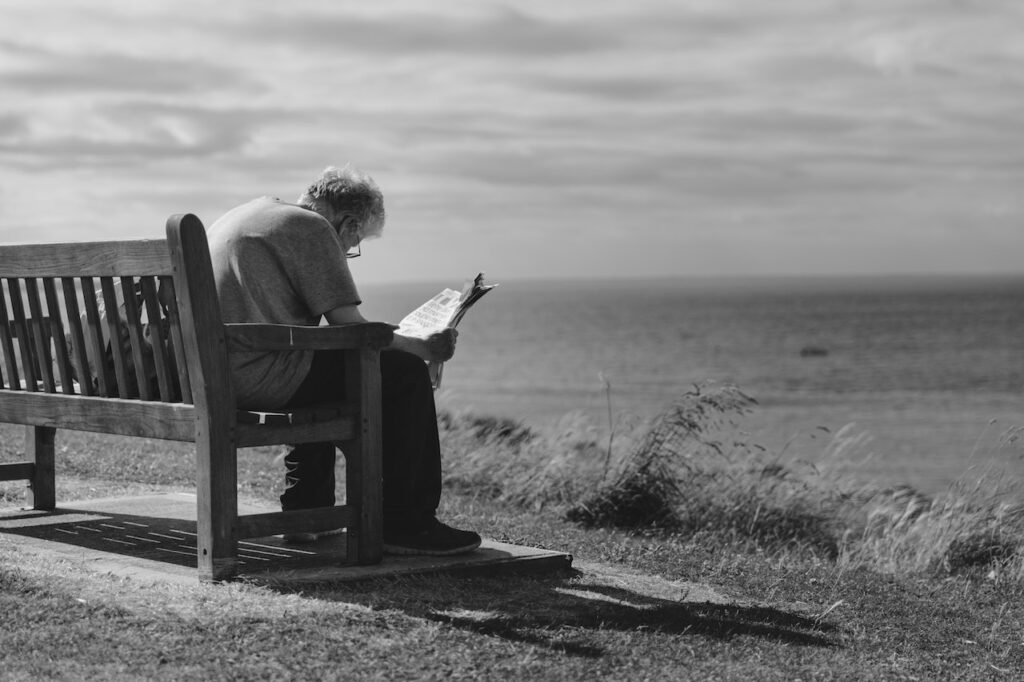
The invisibility of older adults has been made evident in the mass shootings in recent weeks in Monterey Park and Half Moon Bay.
Contrary to what one would think ?and what usually happens?, the mass shootings in recent weeks have not been perpetrated by young people but by older adults, which has puzzled and worried not only the communities but also experts, because until now The exact reason that motivated them to carry out these acts of violence is not known at this time.
In the United States, older adults represent 12 percent of the population, yet they account for approximately 18 percent of suicides, according to the National Council on Aging, raising red flags about what could be happening with this age. section of the population.
And it is that older adults not only suffer from physical health problems, because invisibility, lack of care and attention and isolation are situations that some of them suffer every day.
“Is it strange that within our communities there are elderly people who have been made invisible, treated not even as human beings, who feel isolated?”, questioned Helen Zia, writer, journalist and activist of the Asian-American community, in a conference press organized by Ethnic Media Services in which experts met to discuss the mass shootings that have taken place in recent weeks in Monterey Park and Half Moon Bay.
With this questioning, different paths and spaces for reflection are opened, since society has to ask itself what is being done wrong with the elderly or if it is doing enough for this group of the population that has been forgotten and marginalized for years. .
Zia explained that, according to his book Last Boat out of Shanghai, the majority of Asians in the United States are immigrants and that in the case of older adults, they have suffered the pain of war, which brought with them traumatic situations, that have not been addressed because they think that "nobody cares to hear them".
“These are painful stories,” he commented.
In this sense, Brett Sevilla, medical director of the Asian Pacific Counseling and Treatment Center in Los Angeles, pointed out that older adults have gone through different traumas and stressful situations derived from wars that have not been treated and pointed out that "many of the adults Older people from Vietnam, Cambodia and Laos are dealing with post-traumatic stress from the wars and revolutions that forced them to flee as refugees 40 or 50 years ago."
Laura Som, of the MAYE Center for Healing Survivors of Trauma, Systemic Racism, Oppression and Inequity, said Cambodian refugees ?who are plentiful in Long Beach? they have experienced extreme violence and post-traumatic stress, which has deteriorated the mental health of the community, triggering in some cases hatred, violence, depression and anger.
This situation not only shows that there are older adults with unattended mental health problems, but also the need for communities to have therapists who address these issues and help and accompany them through the situations they present.
In her opportunity, Rita Medina, deputy director of state policies of the Coalition for the Human Rights of Immigrants ?CHIRLA, for its acronym in English? He questioned several of the situations that older adults live on a daily basis and pointed out that there are people who at 70 continue to work in the fields when they should be enjoying their “golden years out of necessity.
And it is that only in California there are at least 17 thousand undocumented elderly people who do not have social security because in more than 10 years it has not been possible for them to fix their immigration status.
"Some of them are alone here in this country, and their bodies are physically deteriorating from the work they do," he said.
However, older adults are not only experiencing physical but also mental deterioration and despite the seriousness that this represents, due attention has not been paid to them, because according to Brett Sevilla, the relatives of patients who have mental health problems They consider it, on many occasions, shameful.
In this sense, Linda Yoon, co-founder of Yellow Chair Collective, pointed out that older adults need to talk about the situations they have suffered, however they do not find the ideal spaces to do so with their families.
Yoon has cared for many of the older adults who have needed this support and said that "many end up crying because they feel ashamed of sharing something so intimate with someone as young as me, they have many hidden traumas, isolation and loneliness."
Undoubtedly, the events of recent weeks have left a job for society, fighting against the invisibility of the elderly, but it has also opened the conversation around this issue, "for me this is a sign that we are raising awareness , making progress, diminishing the stigma, “Sevilla concluded.
You may be interested in: California seeks to toughen gun laws


